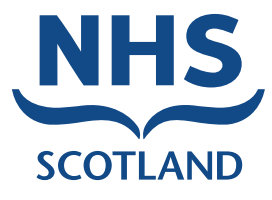November has long been established as the time to shine a spotlight on the mental health crisis men face, alongside the prevention of suicide, prostate cancer and testicular cancer. International Men’s Day is also celebrated every year on 19 November, and this year’s theme is ‘Making a positive difference to the wellbeing and lives of men and boys’.
Key facts about men and boys’ Wellbeing in the UK
Suicide – Men are more likely to die by suicide in England than women. They make up 75% of all deaths by suicide, and it is the most significant cause of male deaths under 50. In 2021, males continued to account for three-quarters of suicide deaths, with 4,704 men in the UK taking their own lives.
Prostate Cancer – On average, 12,000 men die from prostate cancer yearly (33 per day, one every 45 minutes). Prostate cancer is the 2nd most common cause of cancer death in males in the UK (2017-2019).
Ensuring that people struggling with their mental health can have access to appropriate support as early as possible in their treatment process is crucial and central to OneMedical Group’s mission. To make sure people have earlier access to mental health and wellbeing therapies, we have begun the widespread integration of Wellbeing Advisors into a number of our primary and urgent care services, with an ultimate aim of full rollout across all our services.
Our Wellbeing Advisors will regularly host sessions for a range of patient groups, including sessions dedicated to young people, students and new parents, as well as partnering with charities like Age UK to host loneliness sessions in local cafes for the elderly community. We have identified this as a crucial element of improving the visibility of mental health and wellbeing services in our local communities.
Our fully trained Wellbeing Advisors provide advice and support to those who require assistance with their low mental health and are the lead figures on our outreach programmes into local communities.
With a focus on supporting our male patients, Primary and Urgent Care teams share some of the steps they take to identify ways to help them manage stress, anxiety and depression.
Rosie Barton, Wellbeing Advisor at Whitehouse Surgery, talks about a first step in identifying male patients struggling with their mental health wellbeing.
“When patients register with us, they complete a ‘Wellbeing Questionnaire’ that lets us ask about overall wellbeing, alcohol intake, long-term conditions, etc. This helps us identify patients that could be struggling but also gather essential data and facts about men’s health in our community.”
“Our latest data over the last three months (August-October) shows we have supported 157 male patients, most of them between ages 30-39, followed by 40-49. Unfortunately, we still see twice as many females as males, but we are working hard to improve this.
“The most common themes are a low mood and work-related stress. Many men come due to being encouraged by their female partners or wives. Unfortunately, men are more likely to see talking about their mental health as a weakness rather than something beneficial.
“To increase uptake in the future, we are looking to work with the local men’s charity ‘Men in Sheds’, who are keen to come and do a talk and we will look into organising a men’s mental health coffee morning next year.”
Joe Straw, Health Coach at The Light Surgery, also highlights opportunities to assess their patient’s mental health.
“The first appointment with someone is an excellent opportunity to ask about their mental health. Mental health can also be affected by a diagnosis such as diabetes even before a patient starts taking medication which also has side effects.
“Physical activity, a healthy balanced diet and stress management are good places to start when it comes to those struggling with mental health, and it’s important to try as best as possible to find something a patient will enjoy. Frequently, this is a walk in a green space a few days per week. There’s been more research done in recent years about walking and its health benefits. In the first instance, you have the benefit to physical health (e.g. Heart, weight, cancer risk, etc.). There is still added benefit to mental health from the activity itself and the environment.”
In time for Men’s Health month, Derby Urgent Treatment Centre has launched a new Wellbeing Hub, providing free support to the local community. Gemma Collins, Wellbeing Advisor, explains more.
“Derby Urgent Treatment Centre wants to work with the local community to address men’s health and wellbeing (social, emotional, physical and spiritual), the high male suicide rate, and men’s health, including male cancers.”
The new Wellbeing Hub opened at Derby Urgent Treatment Centre in October 2022 with an aim to provide a non-judgmental, open service accessible to everyone, ensuring that people struggling with mental health can access appropriate support as early as possible in their treatment process.
Men and boys of any age or background who feel stressed, overwhelmed or need support in any aspect of their physical or psychological wellbeing are encouraged to drop in or call the centre to arrange a Wellbeing appointment with our Wellbeing Advisor.
Wellbeing at the heart of a healthier future
OneMedical Group delivers the widespread integration of Wellbeing Advisors into a number of primary and urgent care services throughout the country, with the ultimate aim of placing wellbeing services alongside ‘traditional’ health services to bridge the gaps often found in patient care. Prevention and early interventions are key to providing our patients with better outcomes and we will continue to build a focus on wellbeing to support to ensure that patients get well, stay well, and live well.
Our Wellbeing Advisors are based in Corby Urgent Care Centre, Sheffield Walk-in Centre, Derby Urgent Treatment Centre, Whitehouse Surgery in Milton Keynes, and St Nicolas Surgery in St Neots. We also have health coaches at Shakespeare Medical Practice and The Light Surgery, both of which are based in Leeds.








